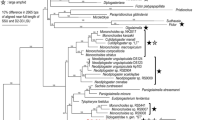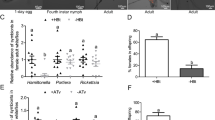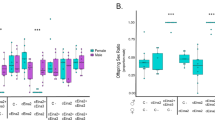Abstract
BUCHNER1 mentions somewhere in his work, unfortunately not available here, that in the absence of general knowledge of symbiosis, spermatozoa have been recorded in the literature when they were really bacteria. At least in one instance enthusiasm has led to a mistake in the opposite direction, for spermatozoa have been illustrated as bacteria. Oliarus cuspidatus is a Fulgorid insect which is supposed to contain as many as five tumours, each with a specific symbiont of its own ; this record being the highest claimed so far. It is a rare insect in Germany, where even Buchner was unable to procure any specimen for his own investigation. Šulc2 found it near Brno in Czechoslovakia, and our knowledge of symbiosis in this insect is entirely due to him.
This is a preview of subscription content, access via your institution
Access options
Subscribe to this journal
Receive 51 print issues and online access
$199.00 per year
only $3.90 per issue
Buy this article
- Purchase on Springer Link
- Instant access to full article PDF
Prices may be subject to local taxes which are calculated during checkout
Similar content being viewed by others
References
"Their u. Pflanze in intrazellular Symbiose" (1930).
Publ. Biolog. de l'école des hautes études vétérin., 3, 2 (Brno, 1924).
Z. morph. u. Ökol., 4 (1925).
Verh. VII Intern. Kongr. Entom., 2, 877 (Berlin).
Author information
Authors and Affiliations
Rights and permissions
About this article
Cite this article
MAHDIHASSAN, S. A Mistaken Symbiont of Oliarus cuspidatus. Nature 159, 237–238 (1947). https://doi.org/10.1038/159237a0
Issue Date:
DOI: https://doi.org/10.1038/159237a0
This article is cited by
-
Symbiosis in Oliarius
Nature (1947)
Comments
By submitting a comment you agree to abide by our Terms and Community Guidelines. If you find something abusive or that does not comply with our terms or guidelines please flag it as inappropriate.



